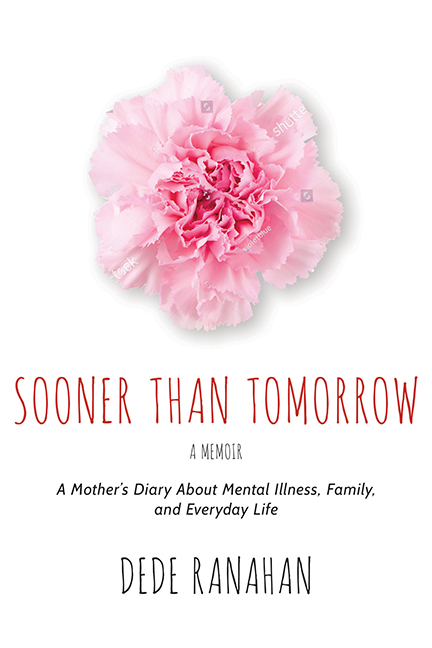San Diego Union Tribune 8/7/19
Coalition seeks support for new laws and policies from presidential candidates
By Gary Warth
POWAY
A grassroots coalition of nationwide and local mental health advocates is asking all presidential candidates to support reforms in laws and policies that they say will make it easier for people to get treatment and for families to help their troubled loved one.
“The first thing you need to do is educate the candidates, because most people don’t understand serious mental illness,” said Poway resident Linda Mimms, a National Alliance on Mental Illness-trained advocate who helped craft a five-point platform that is being presented to candidates.
Mimms has called for reforms to mental illness laws for the past several years, arguing that parents of adults with mental problems should have more rights and courts should have more flexibility to mandate treatment.
Among the proposals in the platform are a call to create a cabinet position exclusively focused on serious mental illness and changes to laws that would ensure mental health professionals are permitted to share and receive diagnostic information with and from parents or caregivers.
Laws about mental illnesses became part of a national discussion this past week after mass shootings in Texas and Ohio. Mimms said she was encouraged when President Trump called for reforming mental health laws to better identify and even involuntarily confine people who may commit violent acts while also ensuring more patients receive early treatment.
She cringed, however, when he referred to “mentally ill monsters,” and noted that a small percent of mass shooters had been diagnosed with mental problems.
There are connections, however. A Wall Street Journal editorial this week cited studies between 2000 and 2015 that suggest a third of mass killers had untreated severe mental illness, while an FBI study found 40 percent had received a psychiatric diagnosis, and 70 percent had other mental health issues.
The platform was drafted after a monthlong online discussion among about 70 people who were not associated with any one group and were from 30 states. Mimms, who has a degree in public policy, wrote the final version that was adopted by organizer Dede Ranahan, author of “Sooner Than Tomorrow — A Mother’s Diary About Mental Illness, Family, and Everyday Life.”
Other local advocates who worked on the platform were Katherine Smith-Brooks and Bob Brooks of Carlsbad and Mary Sheldon of Poway.
The platform’s first topic calls for reclassifying serious mental illness from a behavioral condition to a neurological medical condition, which will unlock more research funding and help in insurance reimbursement, according to the advocates. It also calls for a cabinet position on serious mental illness and the inclusion of schizophrenia in a Centers for Disease Control program that collects data on risk factors of neurological conditions.
The second topic calls for reforming the Health Insurance Portability and Accountability Act, or HIPAA, which the platform writers said creates barriers that shut out parents and caregivers from the treatment of family members.
The third calls for the repeal of a rule that prohibits Medicaid payments to facilities with more than 16 hospital psychiatric beds for people ages 21-65, which the advocates argue has created a national shortage of treatment options.
The fourth platform topic calls for long-term care of people with severe mental illness, including early detection and follow-up treatments after release. The platform calls for federal incentives to states that address a full array of services and supportive housing care.
The final topic is about decriminalizing serious mental illness and includes reforms that can lead to more involuntary treatment, which Mimms said was her personal top priority.
“Serious mental illness is the only disease where the doors to treatment are shut unless a crime is committed,” the platforms reads. Specifically, it calls for redefining criteria for involuntary commitment with terms that are objective and based on scientific, medical needs.
A letter that will be sent to all candidates asks each to address the topics in their campaign appearances and debates, Mimms said.
gary.warth@sduniontribune.com
Click here to read the article in the San Diego Union Tribune 8/7/19 about our 5 part plan for SMI.
NOTE FROM DEDE: If it takes a village to raise a child, it takes a country to help a child with SMI. This coalition is from across our country. Let's keep the momentum going. As Linda has done, contact your local media outlets and send them our plan. Unfortunately, our effort is manifesting in a time of wrenching, national grief. Fortunately, our plan is ready to go. If you'd like a copy of the plan, the cover letter, and an addendum of additional ideas, post your email address in the comments section below, or send it to me at dede@soonerthantomorrow.com. Then forward the documents to people in your sphere of influence. Thanks to everyone participating.
http://www.bit.ly/soonerthantomorrow
Yamileth Lopez holds a photo of her deceased friend Javier Amir Rodriguez at a makeshift memorial for victims in El Paso, Texas. (Mario Tama Getty Images)










